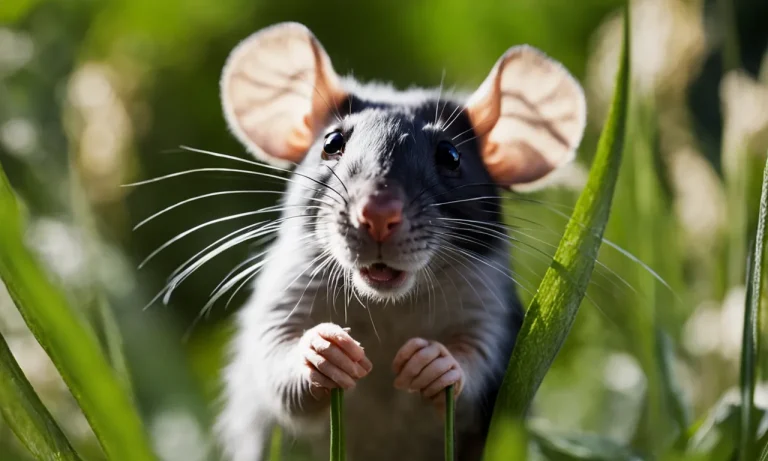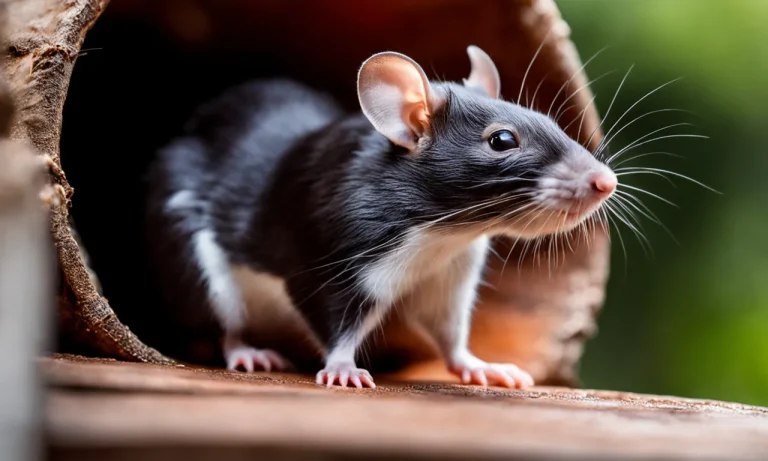Oranges are a popular snack for humans, known for being sweet and nutritious. As a bunny owner, you may be wondering if you can share this tasty treat with your pet. In this comprehensive article, we’ll look at whether or not bunnies can eat oranges, the potential benefits and risks, and how to safely feed oranges to bunnies.
If you’re short on time, here’s a quick answer: Yes, rabbits can eat oranges in small quantities as an occasional treat. Oranges contain natural sugars that bunnies enjoy. However, the acidity and high sugar content mean oranges should only be fed in very limited amounts.
An Overview of Bunny Diets
Bunnies, like any other animals, require a well-balanced diet to stay healthy and thrive. A proper bunny diet consists of a combination of hay, fresh vegetables, and pellets. Understanding the essential components of a bunny’s diet is crucial in ensuring their overall well-being.
Typical Diet Components
The primary component of a bunny’s diet is hay, which should make up the majority of their daily food intake. Hay provides essential fiber, aids in digestion, and helps maintain healthy teeth. The recommended type of hay for bunnies is Timothy hay, but other options such as orchard grass or oat hay can also be included.
In addition to hay, fresh vegetables should be a significant part of a bunny’s diet. Leafy greens like kale, spinach, and romaine lettuce are excellent choices. It is essential to introduce a variety of vegetables slowly to prevent digestive upsets.
It’s best to start with small amounts and gradually increase the portion size.
Lastly, pellets specifically formulated for rabbits can be fed in small quantities. These pellets provide essential nutrients and vitamins that may be lacking from hay and vegetables. However, it’s important to note that pellets should not be the primary food source for bunnies, as an excessive amount can lead to obesity and other health issues.
Importance of Fiber
Fiber is a vital component of a bunny’s diet. It aids in digestion, prevents hairballs, and maintains a healthy gut. Hay is an excellent source of fiber, and bunnies should have access to it at all times.
The fibrous nature of hay also helps wear down their teeth, which continuously grow throughout their lives.
Feeding a high-fiber diet can also prevent certain gastrointestinal diseases in bunnies, such as gastrointestinal stasis. This condition occurs when the digestive system slows down or stops, leading to a buildup of gas and discomfort.
A diet rich in fiber helps keep the digestive system moving efficiently, reducing the risk of stasis.
Treats and New Foods
While hay and fresh vegetables are the mainstay of a bunny’s diet, treats and new foods can be introduced occasionally. It’s important to remember that bunnies have sensitive digestive systems and may not tolerate certain foods well.
Introduce new foods gradually, and observe your bunny for any signs of digestive upset.
When it comes to treats, it’s best to opt for healthy options such as small pieces of fruit or herbs. However, not all fruits and vegetables are safe for bunnies. For example, while oranges are safe for bunnies to eat in moderation, they should not be given in excessive amounts due to their high sugar content.
Remember, a balanced diet is key to keeping your bunny healthy and happy. If you have any concerns about your bunny’s diet or nutrition, it’s always best to consult with a veterinarian who specializes in small animal care.
Nutritional Profile of Oranges
Oranges are not only delicious, but they also offer a range of essential nutrients that can benefit our health. Let’s take a closer look at the nutritional profile of oranges:
Calories and Macronutrients
An average-sized orange contains around 62 calories, making it a low-calorie fruit option. It is also low in fat and cholesterol. Oranges are a good source of dietary fiber, which aids in digestion and helps regulate blood sugar levels.
Vitamins and Minerals
Oranges are packed with vitamins and minerals, making them a great addition to a balanced diet. They are particularly rich in vitamin C, which is essential for a healthy immune system and plays a vital role in collagen production.
Oranges also contain significant amounts of vitamin A, vitamin B6, and potassium.
Sugars
While oranges contain natural sugars, they are relatively low in comparison to other fruits. The natural sugars in oranges are accompanied by dietary fiber, which helps regulate the absorption of sugar into the bloodstream.
This makes oranges a healthier choice compared to processed foods that are high in added sugars.
Acidity
Oranges have a moderate level of acidity, which gives them their characteristic tangy taste. However, their acidity does not pose any significant health risks for most individuals. In fact, the citric acid found in oranges can aid in digestion and boost the absorption of certain nutrients.
Benefits of Feeding Oranges to Bunnies
High Water Content
One of the key benefits of feeding oranges to bunnies is their high water content. Bunnies need to stay hydrated to maintain their overall health and well-being. Oranges, being composed of nearly 90% water, can help supplement their water intake and keep them properly hydrated.
This is especially important during hot weather or if your bunny is not drinking enough water on its own. So, offering them a slice of orange can be a great way to ensure they are getting enough fluids.
Natural Sugars
Oranges also contain natural sugars, which can provide quick energy to bunnies. These sugars are easily digestible for rabbits, making oranges a tasty and healthy snack option. However, it’s important to note that oranges should be given in moderation, as excessive sugar intake can lead to digestive issues and obesity in bunnies.
So, it’s best to offer oranges as an occasional treat rather than a regular part of their diet.
Vitamin C
Another significant benefit of feeding oranges to bunnies is the vitamin C content. Vitamin C is essential for the proper functioning of their immune system and overall health. While bunnies can produce vitamin C on their own, offering them foods rich in this vitamin can provide an additional boost.
Oranges are an excellent source of vitamin C, which can help strengthen their immune system and promote overall well-being. It’s worth noting that vitamin C is a sensitive nutrient and can degrade over time, so it’s best to offer fresh oranges to your bunny.
Potential Risks of Feeding Oranges to Bunnies
High Sugar Content
Oranges are known for their high sugar content, which can be problematic for bunnies. While bunnies can enjoy a variety of fruits as an occasional treat, too much sugar can lead to health issues such as obesity, dental problems, and even diabetes.
It’s important to remember that a bunny’s diet should primarily consist of hay, fresh vegetables, and a small amount of pellets.
Citric Acid
Citric acid is found in high concentrations in oranges, and it can cause digestive problems for bunnies. Bunnies have sensitive digestive systems, and feeding them citrus fruits like oranges can lead to stomach upset, diarrhea, or even bloating.
These symptoms can be uncomfortable and potentially harmful to your furry friend.
GI Upset
Bunnies have a delicate gastrointestinal system, and introducing new foods like oranges can disrupt their digestive balance. This can result in gastrointestinal upset, including gas, stomach discomfort, and changes in their stool.
It’s always best to introduce new foods gradually and observe how your bunny reacts to them.
Obesity
Feeding oranges to bunnies can contribute to obesity if not done in moderation. Bunnies are naturally active animals and need a balanced diet to maintain a healthy weight. The high sugar content in oranges, combined with their sedentary lifestyle, can lead to weight gain and related health issues.
It’s important to monitor your bunny’s food intake and provide plenty of exercise to prevent obesity.
While oranges may be a tempting treat for bunnies, it’s best to avoid feeding them to your furry friend. Instead, stick to their natural diet of hay, fresh vegetables, and a small amount of pellets. If you’re looking for safe fruits to offer as an occasional treat, consider options like strawberries or apples, which have lower sugar content and are generally better tolerated by bunnies.
How to Safely Feed Oranges to Bunnies
If you’re wondering whether bunnies can eat oranges, the answer is yes! Oranges can be a tasty and healthy treat for your furry friend. However, it’s important to follow some guidelines to ensure that your bunny stays safe and healthy when consuming oranges.
Selecting and Preparing Oranges
When feeding oranges to your bunny, it’s crucial to select fresh and organic oranges. Organic oranges are free from pesticides and other harmful chemicals, which can be harmful to your pet. Before offering the orange to your bunny, make sure to wash it thoroughly to remove any dirt or residue.
It’s also important to peel the orange and remove any seeds before feeding it to your bunny. Orange seeds can be a choking hazard and should be avoided. Remember to remove the white pith as well, as it can be difficult for bunnies to digest.
Recommended Serving Size and Frequency
While oranges are safe for bunnies to eat, it’s important to offer them in moderation. Too much citrus fruit can upset your bunny’s delicate digestive system. The recommended serving size for oranges is about 1-2 small segments per week.
This small serving size allows your bunny to enjoy the taste of oranges without overloading their system.
Always observe your bunny after feeding them oranges to ensure they don’t develop any stomach upset or other adverse reactions. If you notice any unusual symptoms, such as diarrhea or lack of appetite, it’s best to consult with a veterinarian.
Tips for Introducing New Foods
When introducing oranges, or any new food, to your bunny’s diet, it’s important to do so gradually. Bunnies have sensitive digestive systems, and sudden changes in their diet can lead to digestive upset. Start by offering a small piece of orange and observe how your bunny reacts.
If they tolerate it well, you can gradually increase the amount over time.
Remember, while oranges can be a healthy addition to your bunny’s diet, they should not replace their main diet of hay, fresh vegetables, and limited amounts of pellets. Treats like oranges should only be given occasionally and in small quantities.
For more information on bunny nutrition and care, you can visit reputable websites such as www.rabbit.org or www.petmd.com. These websites provide valuable resources and guidance to ensure the health and well-being of your furry friend.
Conclusion
In conclusion, oranges can be an enjoyable treat for bunnies when fed in strict moderation. The vitamins, minerals, and natural sugars can provide some benefits. However, the high sugar and citric acid mean oranges should only account for a very small portion of a bunny’s diet.
By feeding minimal amounts infrequently, monitoring your bunny’s health, and properly introducing new foods, you can allow your rabbit to enjoy oranges safely.






